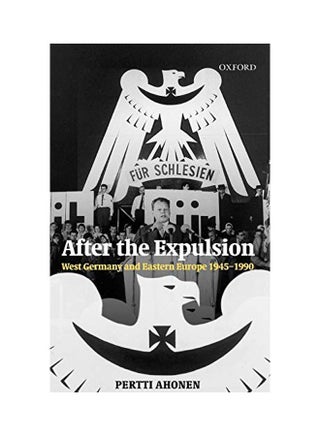| وصف الكتاب | This book breaks new ground by connecting two central problems faced by the Federal Republic of Germany prior to reunification in 1990, both of them rooted in the Second World War. Domestically, the country had to integrate eight million expellees forced out of their homes in Central and Eastern Europe as a result of the lost war. Externally, it had to re-establish relations with Eastern Europe, despite the burdens of the Nazi past, the expulsions, and the ongoing
East-West struggle in the Cold War. This study shows how the long-term consequences of the expellee problem significantly hindered West German efforts to develop normal ties to the East European states. In particular, it emphasizes a point largely overlooked in the existing literature: the way in which
the political integration of the expellees into the Federal Republic had unanticipated negative consequences for the country's Ostpolitik. |
استرجاع مجاني وسهل
أفضل العروض

